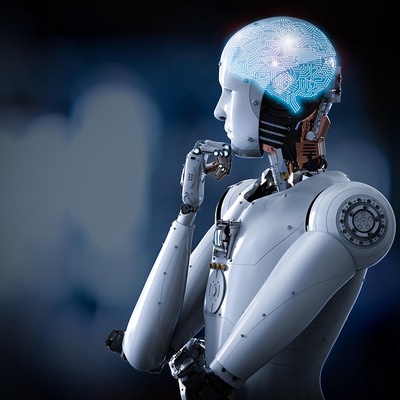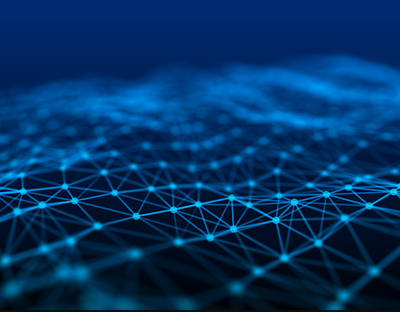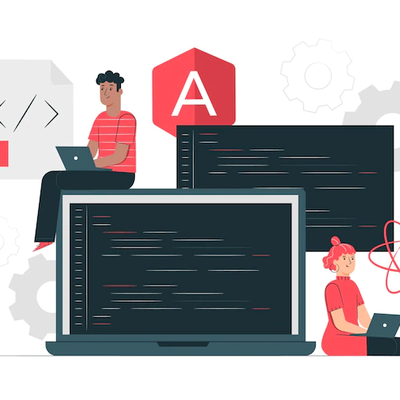Space exploration has always been at the forefront of human innovation and curiosity, driving us to push the boundaries of what we know about the universe. In recent years, artificial intelligence (AI) has emerged as a powerful tool in advancing space exploration, enabling researchers and scientists to unlock new discoveries and push the limits of our understanding of the cosmos. In this blog, we'll delve into the role of AI in space exploration, its impact on research and discovery, and the exciting possibilities it holds for the future of humanity's journey beyond Earth.
Empowering Space Exploration through App Development Expertise:
In the dynamic field of space exploration, hire app developer is essential for leveraging technology to enhance mission planning, data analysis, and communication with spacecraft and rovers. App developers possess the technical expertise to design and develop user-friendly applications tailored to the unique needs of space missions, whether it's creating interfaces for controlling robotic arms, visualizing satellite imagery, or analyzing telemetry data. By collaborating with app developers, space agencies and research institutions can streamline mission operations, improve data management workflows, and enable real-time communication between ground control and space probes. Moreover, app developers play a crucial role in enhancing the accessibility and usability of space exploration technologies, ensuring that researchers and engineers can make the most of available resources and achieve groundbreaking discoveries beyond Earth's atmosphere.
Enabling Precision in Space Exploration with Data Annotation Specialists:
Data annotation specialist are indispensable in the realm of space exploration, where accuracy and precision are paramount. These specialists meticulously label and annotate datasets, ensuring that the vast amounts of data collected from space missions are accurately categorized and contextualized. By annotating data points related to celestial objects, spacecraft telemetry, and environmental variables, data annotation specialists enable researchers and engineers to extract meaningful insights and make informed decisions during space missions. Their attention to detail and expertise in data annotation contribute to the reliability and quality of data analysis, allowing space agencies to uncover new discoveries and better understand the mysteries of the universe. Whether it's annotating images of distant galaxies or classifying signals from deep space, data annotation specialists play a vital role in advancing our knowledge of the cosmos and pushing the boundaries of space exploration.
Unlocking Insights with Natural Language Generation (NLG):
In the realm of space exploration, Natural Language Generation (NLG) is emerging as a valuable tool for interpreting and communicating complex data in a way that is understandable and actionable for researchers and mission planners. NLG algorithms analyze vast datasets from space missions, telescopes, and satellites to generate human-like text and speech, providing researchers with insights into distant galaxies, planetary surfaces, and cosmic phenomena. By converting raw data into coherent narratives and reports, NLG enables scientists to extract meaning from the vastness of space and make informed decisions about future exploration endeavors. Whether it's summarizing mission findings, generating research papers, or communicating with the public, NLG empowers space agencies and researchers to share their discoveries and inspire the next generation of explorers.
The Role of AI in Space Exploration:
AI technologies have revolutionized various aspects of space exploration, from mission planning and spacecraft operations to data analysis and autonomous decision-making. One of the key areas where AI shines is in optimizing mission planning and execution. AI algorithms can analyze vast amounts of data from space probes, telescopes, and satellites to identify promising targets for exploration, map out optimal trajectories, and plan complex maneuvers with precision.
Moreover, AI-powered autonomous systems enable spacecraft to operate more efficiently and adapt to changing conditions in real-time. These systems can detect and respond to anomalies, adjust their behavior accordingly, and even make decisions autonomously without human intervention. This not only reduces the workload on mission controllers but also increases the reliability and flexibility of space missions.
AI is also transforming how we analyze and interpret data collected from space. Machine learning algorithms can sift through massive datasets, such as images of distant galaxies or spectra from planetary atmospheres, to identify patterns, detect anomalies, and extract valuable insights. By automating data analysis tasks, AI accelerates the pace of scientific discovery and enables researchers to make breakthroughs that would be impossible with traditional methods alone.
User Value:
For space agencies and researchers, AI offers numerous benefits that enhance the efficiency, effectiveness, and safety of space exploration missions. By leveraging AI technologies, scientists can optimize mission planning, reduce costs, and maximize the scientific return on investment. AI-powered autonomous systems also enable spacecraft to operate more independently, reducing the need for constant human oversight and enabling longer-duration missions to explore distant worlds.
Moreover, AI-driven data analysis tools enable researchers to extract more information from space data than ever before, leading to new discoveries and insights into the nature of the universe. By automating tedious and time-consuming data analysis tasks, AI frees up researchers to focus on higher-level analysis and interpretation, accelerating the pace of scientific discovery and advancing our understanding of the cosmos.
Looking to the Future:
As AI technologies continue to evolve, the future of space exploration holds even more promise. AI-powered robotic missions could enable us to explore the most extreme environments in the solar system, from the icy moons of Jupiter to the methane lakes of Titan. Autonomous spacecraft equipped with AI could even be sent on interstellar missions to explore nearby star systems and search for signs of extraterrestrial life.
Furthermore, AI-driven virtual assistants and decision-support systems could revolutionize how astronauts live and work in space, providing them with real-time guidance, assistance, and support. These systems could help astronauts perform complex tasks, monitor their health and well-being, and enhance their overall productivity and safety during long-duration space missions.
Conclusion:
AI is reshaping the landscape of space exploration, empowering scientists and researchers to push the boundaries of what is possible and unlock new frontiers in our quest to understand the universe. From optimizing mission planning and spacecraft operations to analyzing vast amounts of space data, AI technologies are revolutionizing how we explore, study, and ultimately, colonize space. As we look to the future, the possibilities for AI in space exploration are limitless, offering humanity the opportunity to embark on an exciting journey of discovery and exploration beyond Earth's boundaries.


![10 Best Instagram Story Viewers in 2023 [Anonymous And Free]](https://img2.likefm.org/100x/https://likefm.org/storage/posts/2023/02/21/78/VTTIAtPlhidpKbNsRka20X0V6jfPsag7gZhMyltC.png)















Comments (0)